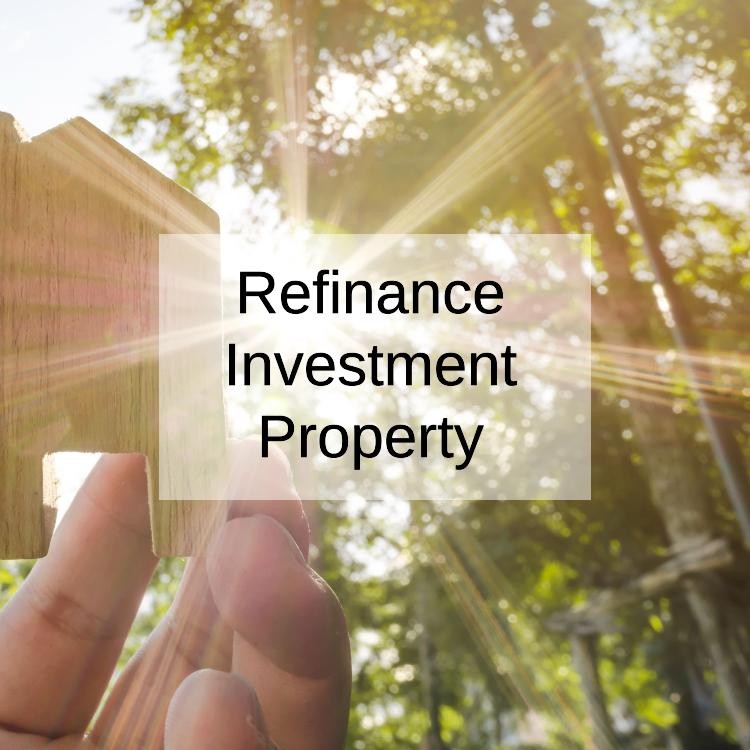Refinancing an investment property can be a strategic financial move for real estate investors looking to optimize their cash flow, lower interest rates, access equity, or improve overall investment returns. Refinancing allows investors to replace an existing types of mortgage loans, potentially securing more favorable terms and achieving their investment objectives. In this comprehensive guide, we will explore the process of refinancing an investment property, considerations for investors, steps involved, benefits, potential challenges, and tips for maximizing the refinancing opportunity.
Understanding Investment Property Refinancing
Refinancing an investment property involves obtaining a new mortgage loan to replace the current loan on the property. Investors may consider refinancing for various reasons, including:
Lower Interest Rates: Securing a new loan with lower interest rates can reduce borrowing costs and improve cash flow from rental income.
Accessing Equity: Refinancing allows investors to access equity accumulated in the property, providing funds for renovations, property improvements, or additional real estate investments.
Changing Loan Terms: Investors may refinance to change loan terms, such as extending the loan duration, switching from adjustable-rate to fixed-rate mortgages, or consolidating multiple loans into a single mortgage.
Debt Consolidation: Consolidating debt from multiple investment properties into a single loan can streamline financial management and reduce administrative burdens for investors.
Considerations Before Refinancing
Before pursuing a refinance on an investment property, investors should consider the following factors:
Loan-to-Value (LTV) Ratio: Lenders typically impose maximum LTV ratios, limiting the amount of equity investors can access through refinancing. Understanding LTV requirements helps investors assess their eligibility and potential loan options.
Creditworthiness: Investors' credit profiles, including credit scores, income stability, debt-to-income ratios, and payment history, influence their ability to qualify for refinancing and secure favorable loan terms.
Market Conditions: Evaluating prevailing interest rates, market trends, and lender offerings helps investors determine the timing and feasibility of refinancing to maximize potential savings and benefits.
Property Appraisal: Mortgage loan lenders may require property appraisals to assess the current market value of the investment property and determine loan eligibility and terms. Understanding property valuation helps investors anticipate appraisal outcomes and loan-to-value ratios.
Steps Involved in Refinancing an Investment Property
The refinancing process for an investment property typically involves the following steps:
Assessment of Current Mortgage: Evaluate the terms, interest rates, and repayment structure of the existing mortgage to identify potential refinancing opportunities and assess the feasibility of refinancing.
Research and Comparison: Research mortgage lenders, loan products, and refinancing options to identify lenders offering competitive rates, favorable terms, and loan programs tailored to investment properties.
Preparation of Documentation: Gather required documentation, including financial statements, tax returns, property income and expense records, rental agreements, and property insurance information, to support the refinancing application.
Application Submission: Submit a refinancing application to selected lenders, providing accurate and comprehensive information about the investment property, borrower qualifications, and loan requirements.
Underwriting and Approval: Lenders evaluate the refinancing application, conduct credit checks, verify financial information, assess property valuation, and determine loan eligibility and approval.
Loan Closing and Funding: Upon approval, finalize the loan terms, review closing documents, pay closing costs and fees, and complete the loan closing process to secure funding for the refinanced mortgage.
Benefits of Refinancing an Investment Property
Refinancing an investment property offers several potential benefits for real estate investors, including:
Improved Cash Flow: Lower home loan interest rates and reduced monthly mortgage payments enhance cash flow from rental income, improving overall investment returns and profitability.
Access to Equity: Accessing equity through refinancing provides funds for property improvements, renovations, debt consolidation, or additional real estate acquisitions, enhancing portfolio growth and diversification.
Enhanced Loan Terms: Refinancing allows investors to renegotiate loan terms, extend loan durations, switch between adjustable-rate and fixed-rate mortgages, or consolidate multiple loans into a single mortgage, improving financial flexibility and stability.
Portfolio Optimization: Refinancing enables investors to optimize their investment portfolio by restructuring debt, reducing borrowing costs, and maximizing investment opportunities in competitive real estate markets.
Potential Challenges and Risks
While refinancing offers opportunities for investors, it also presents potential challenges and risks, including:
Closing Costs and Fees: Refinancing typically involves closing costs, origination fees, appraisal fees, and other expenses, which can impact overall savings and investment returns.
Market Volatility: Fluctuations in interest rates, property values, and market conditions may affect the feasibility and timing of refinancing, requiring investors to monitor market trends and adapt their refinancing strategies accordingly.
Credit and Eligibility Requirements: Meeting lender creditworthiness and eligibility criteria, including credit scores, debt-to-income ratios, and property valuation requirements, may pose challenges for investors, especially those with limited financial resources or credit history.
Property Valuation Risks: Appraisal discrepancies, property value fluctuations, and market uncertainties may affect property valuation and loan-to-value ratios, potentially impacting refinancing eligibility and loan terms.
Tips for Maximizing Refinancing Opportunities
To maximize the benefits of refinancing an investment property, investors should consider the following tips:
Maintain Good Credit: Maintain a strong credit profile by making timely payments, managing debt responsibly, and monitoring credit reports to improve eligibility and qualify for favorable home loan rates terms.
Shop Around for Lenders: Compare mortgage lenders, loan products, interest rates, and terms to identify lenders offering competitive refinancing options tailored to investment properties.
Evaluate Tax Implications: Consult with tax advisors or financial professionals to assess potential tax implications of refinancing, including deductibility of mortgage interest, depreciation, and capital gains, to optimize tax efficiency and minimize liabilities.
Monitor Market Conditions: Stay informed about prevailing interest rates, market trends, and economic indicators to identify favorable refinancing opportunities and make informed decisions aligned with investment objectives and market dynamics.
Refinancing an investment property is a strategic financial decision that requires careful planning, evaluation of options, and consideration of investor objectives and market conditions. By understanding the refinancing process, assessing eligibility and feasibility, weighing benefits and risks, and implementing effective refinancing strategies, real estate investors can optimize their investment portfolios, enhance cash flow, access equity, and achieve long-term financial success in the dynamic real estate market landscape.

















